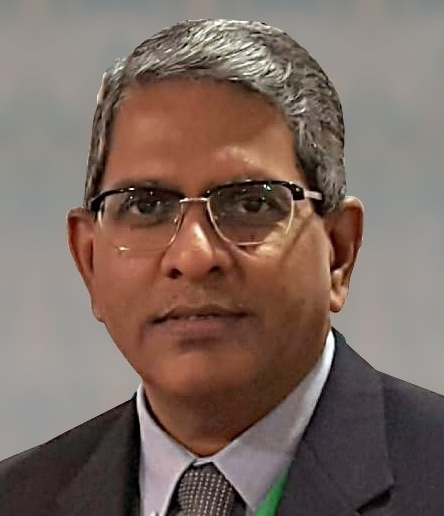Goenkarponn lies not in purportedly “superior parent organisations" but in the collective spirit of unity, solidarity, and pride of existing associations.
Canada, renowned for its multicultural ethos, stands as a testament to the vibrant tapestry of humanity. Within its borders, a rich mosaic of cultures intertwines seamlessly, each contributing its unique hues to the kaleidoscope of Canadian society.
From the bustling streets of Toronto to the serene landscapes of Vancouver, the diversity of people and traditions is awe-inspiring. The Goan footprint has a long-standing historical presence and as such, its development and impact are significant.
The diaspora community of Goans scattered across the world often finds itself in a delicate balancing act between preserving their rich cultural heritage and adapting to the dynamics of their adopted homelands.
As waves of migration have carried Goans far from their ancestral shores, communities have sprouted in various corners of the world, each with its own unique identity and aspirations. However, amidst this diversity, there emerges a common thread of nostalgia and pride for their Goan roots, encapsulated in the term "Goenkarponn."
VIBRANT GOAN ASSOCIATIONS
The formation of different groups and associations by Goans abroad reflects their earnest desire to stay connected with their cultural ethos and support fellow Goans in preserving and promoting Goan traditions. These groups, often starting as informal gatherings, evolve into organised associations, fostering a sense of purpose, belonging, and solidarity among members of the diaspora.
Over the years, the following Goan associations and groups have made significant contributions to the lives of the diaspora in Canada: Indo-Pakistani Christian Association (1958), Goan Overseas Association (G.O.A.) Toronto (1970), The Canorient Christian Association Montreal (1971), The Goan Association Calgary (1975), Edmonton Goan Association (1975), Canadian Goan Association (1976), Quebec Goan Association (1977), Goan Overseas Association (G.O.A.) Vancouver (1978), Canorient Christian Association of Metropolitan Toronto (1984) and Canorient Christian Association of Calgary (1988). In addition, the G.O.A. Toronto has a charitable arm called Goan Charitable Organization (G.C.O).
These unique organisations form their distinct colourful umbrellas, and have deepened one’s love for Goa.
In countries like Canada, where Goan communities (from Karachi, Mumbai, Goa, East Africa, and the Middle East) have flourished for over half a century, the established associations play a pivotal role in nurturing Goan identity and camaraderie. From organising cultural events and festivals to providing support networks for new immigrants, these associations, especially in Greater Toronto Area (GTA), Vancouver, Calgary, Edmonton, and Ottawa serve as vibrant hubs of Goan life abroad. An estimated 40,000 Goans are living in Canada.
DIVISION BY REDUNDANT GROUPS
However, despite the commendable efforts of existing associations, there emerges a perplexing trend of fragmentation and discord within the diaspora. New groups sprout up with promises of unity and lofty ideas, often fuelled by personal ambitions or grievances. This phenomenon of splintering undermines the collective strength of the Goan community and dilutes efforts towards common goals.
It is essential to recognise that the existing associations already fulfil the diverse needs of the diaspora. Rather than perpetuating division by forming redundant groups, efforts should be directed toward strengthening existing structures and fostering collaboration among them. In my opinion, “unity does not lie in the creation of more organisations but in the consolidation of existing ones toward a shared vision.”
Moreover, the impulse to absorb established associations in favour of a purportedly “superior parent organisation” is misguided and counterproductive. Such actions not only breed resentment but also risk erasing the unique identities and legacies built by long-standing associations and their founding members over decades.
The representation of Goans in Canada is historical and formidable. Most of these formal, legal, and well-organised groups are now almost fifty years old. That says a lot about these organisations, their founders, and incumbents, and therefore, I find no reason why they should be invited to join a purported ‘umbrella’ organisation. It is meaningless unless there are other motives.
Instead of succumbing to the allure of leadership roles, the illusion of exclusivity, or commercial intent, individuals should channel their energies towards meaningful contributions within existing frameworks. By leveraging the resources and expertise of established associations, newcomers can make a more significant impact while preserving the continuity of Goan heritage and traditions.
Furthermore, it is imperative to confront and address the underlying motives driving discord within the diaspora. Whether stemming from personal rivalries, ideological differences, or misplaced ambitions, the purported disruptive elements threaten to fracture the cohesive fabric of the Goan community in the Canadian context.
Effective communication, transparency, and inclusivity are essential in resolving conflicts and fostering a sense of belonging among all members of the diaspora. Embracing diversity of thought and experience enriches the Goan identity and strengthens bonds across generations and geographies.
ESSENCE OF GOENKARPONN
Ultimately, the true essence of Goenkarponn lies not in purportedly “superior parent organisations" but in the collective spirit of unity, solidarity, and pride of existing, distinct and vibrant associations which unite Goans around the world.
It is through collaboration, mutual respect, and a shared commitment to preserving Goan heritage that the diaspora can thrive and flourish, bridging the distance between their adopted homes and their beloved Goan shores.
Yet, amidst this rich tapestry of diversity, there exists a profound sense of unity that transcends cultural boundaries. Canadians, regardless of their backgrounds, share a common commitment to the values of inclusivity, tolerance, and mutual respect. It is this shared ethos that binds together the myriad threads of multiculturalism, weaving them into the fabric of Canadian identity. Goans have done well for themselves.
 (The writer is a Toronto-based communications consultant, Karachi Goan community/city historian and author)
(The writer is a Toronto-based communications consultant, Karachi Goan community/city historian and author)